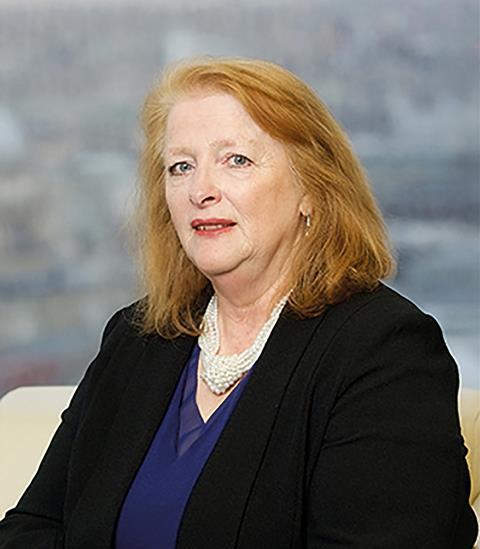Partner, London
I had no clear idea what kind of work I wanted to do after university. Then I moved to the US for personal reasons, and decided I would go to work as a legal assistant to see if the law was a career I might be interested in. I was immediately captivated by the litigation process and found it endlessly fascinating because of the dynamic interplay between parties and their (sometimes hidden) motivations, often complex sets of facts, the courts’ rules, and the way judges and arbitrators went about reaching a decision. I was hooked. Disputes work is endlessly fascinating.

I attended law school at Loyola University of Chicago School of Law, which was an intensive three year programme. I loved it. I took part in moot competitions and mock trials, revelling in the practical side of the training as well as the academic aspects of the course. After graduation I took the Illinois Bar exam and began practising in Chicago in the commercial litigation practice of one of the biggest US law firms. After about four years of practice, I returned to London and qualified as a solicitor through the Law Society’s Qualified Lawyer Transfer Test. I also qualified in Ireland after the UK left the European Union.
I gained valuable experience of litigation in my early years practising in Chicago. Following my return to the UK, I became involved in international commercial arbitration and later investor state arbitration. I specialised for many years in that work, qualifying as a Fellow of the Chartered Institute of Arbitrators and a CEDR approved mediator.
My involvement in competition litigation came about when a US colleague asked if it was possible to bring a claim in the UK relating to a global cartel that he was litigating in the US. This was more than 15 years ago, before competition damages claims had become commonplace. So I launched the third damages claim in the Competition Appeal Tribunal and my career slowly but surely focused on cartel damages claims, both for large corporate claimants and for the defence.
'People who work in the law are in a privileged position in society and it is only right that we do our part in giving back to people who need our help'
I am enormously proud of my firm’s pro bono work, and the pro bono efforts of our London office which I have the privilege to lead. Our pro bono practice was recently ranked in the top 10 London firms, despite the fact that we do not have nearly as many lawyers as many other firms in London. We have a long and proud tradition of giving back to the communities where our lawyers live and work, and this commitment is built into our expectations of every lawyer in the firm. There are so many reasons for this. First, it is just the right thing to do. Our societies have become more and more ruled by complex laws and regulations which the people who depend on them need help to understand, and the availability of help from the state has been chipped away over the years, leaving people with nowhere to turn for help. Solicitors and barristers offering pro bono assistance can go a small way to filling that void. Second, people who work in the law are in a privileged position in society and it is only right that we do our part in giving back to people who need our help. Third, from the point of view of the professional development of our lawyers, pro bono cases give us all a terrific opportunity to expand our knowledge and use the skills we have in entirely new contexts. And fourth, I know that I am not alone in finding my pro bono work to be among some of the most personally satisfying work I have done.
We do a lot of pro bono work with Kids in Need of Defence (KIND) – a charity that assists children who were born in the UK to parents who do not have immigration status here. These children have typically spent their entire lives here, but they live under the shadow of a threat of deportation, even when they have been here long enough to earn the right to apply for leave to remain or even citizenship in the UK. With the guidance of KIND’s amazing and experienced immigration lawyers, we have taken on several of KIND’s clients and helped them to navigate the hugely complex immigration laws and regulations to apply to the Home Office for leave to remain or citizenship, whichever is appropriate. Using the skills we use every day – interviewing witnesses and writing compelling submissions – and with the expertise that KIND brings in immigration laws, we are able to contribute to giving those children the chance of a future in the UK. Seeing the smiles on those children’s faces has been one of the most gratifying experiences of my life.































No comments yet